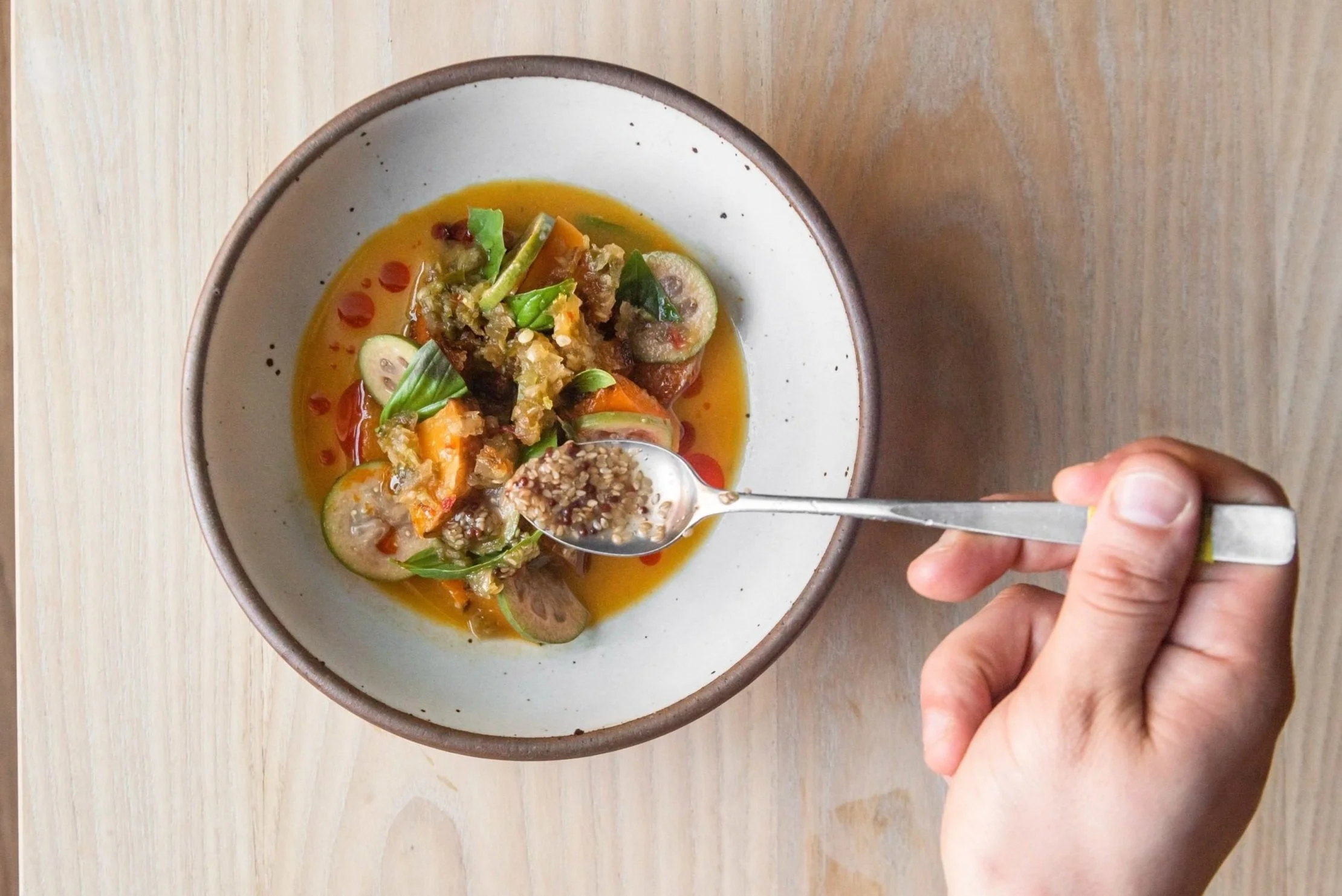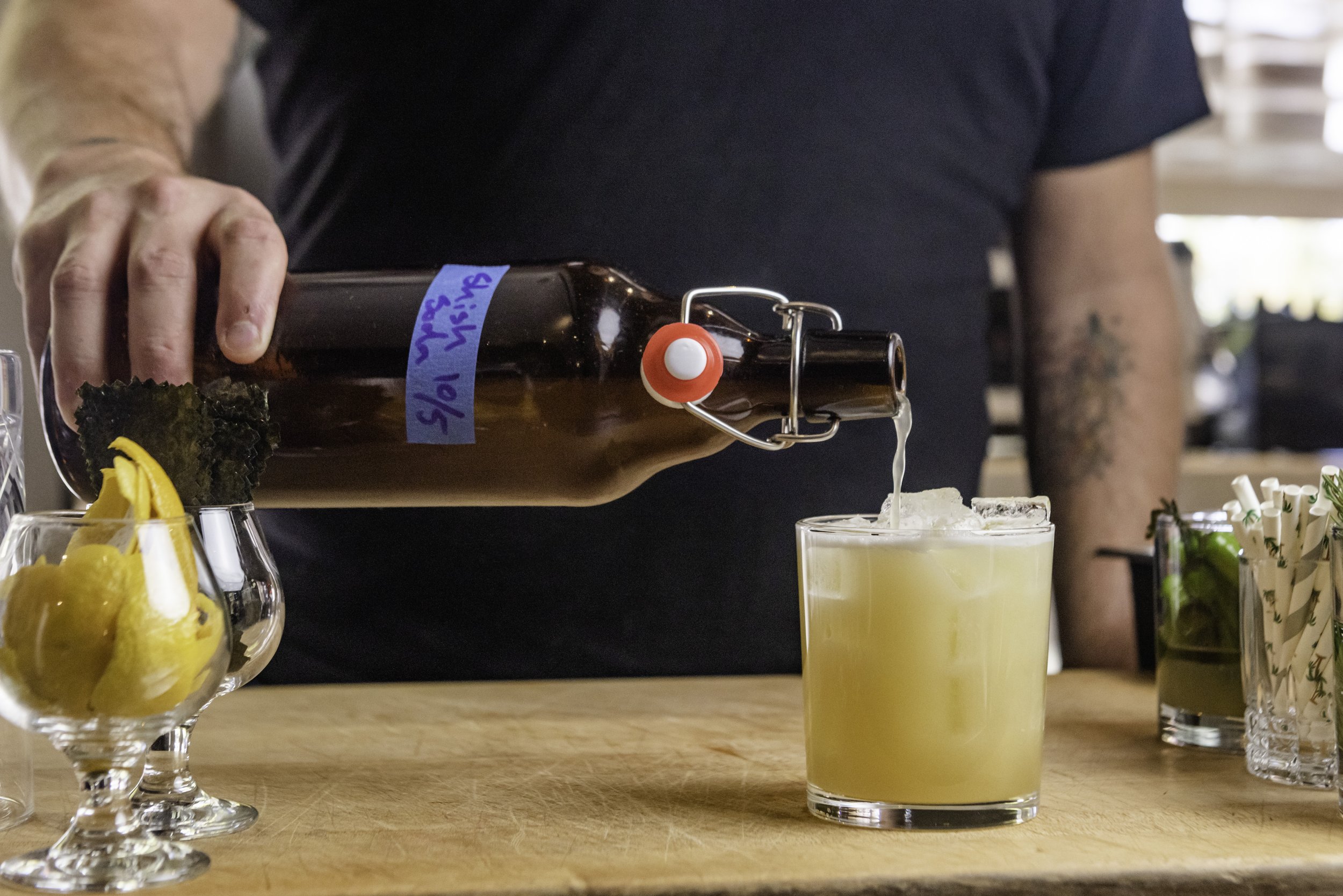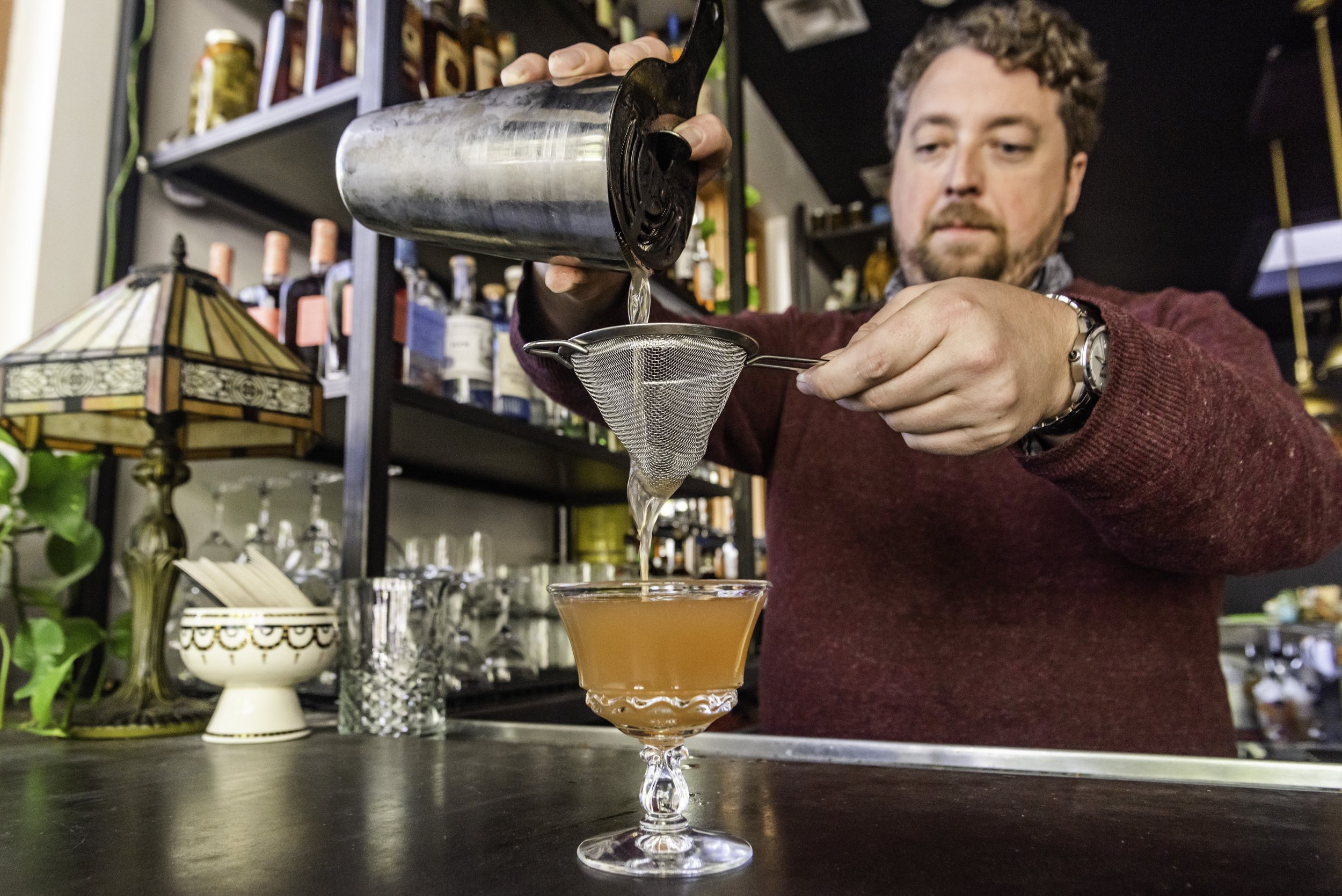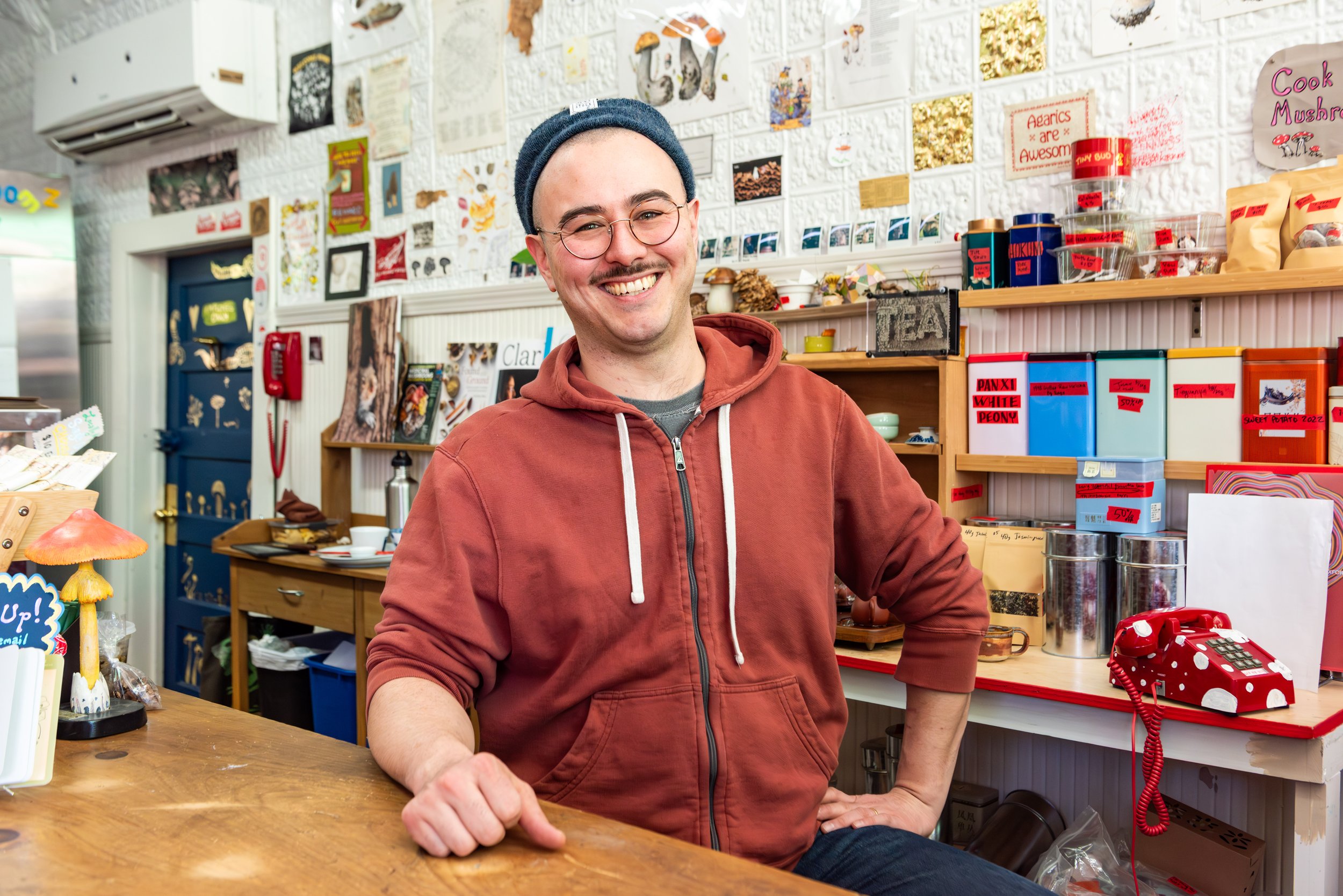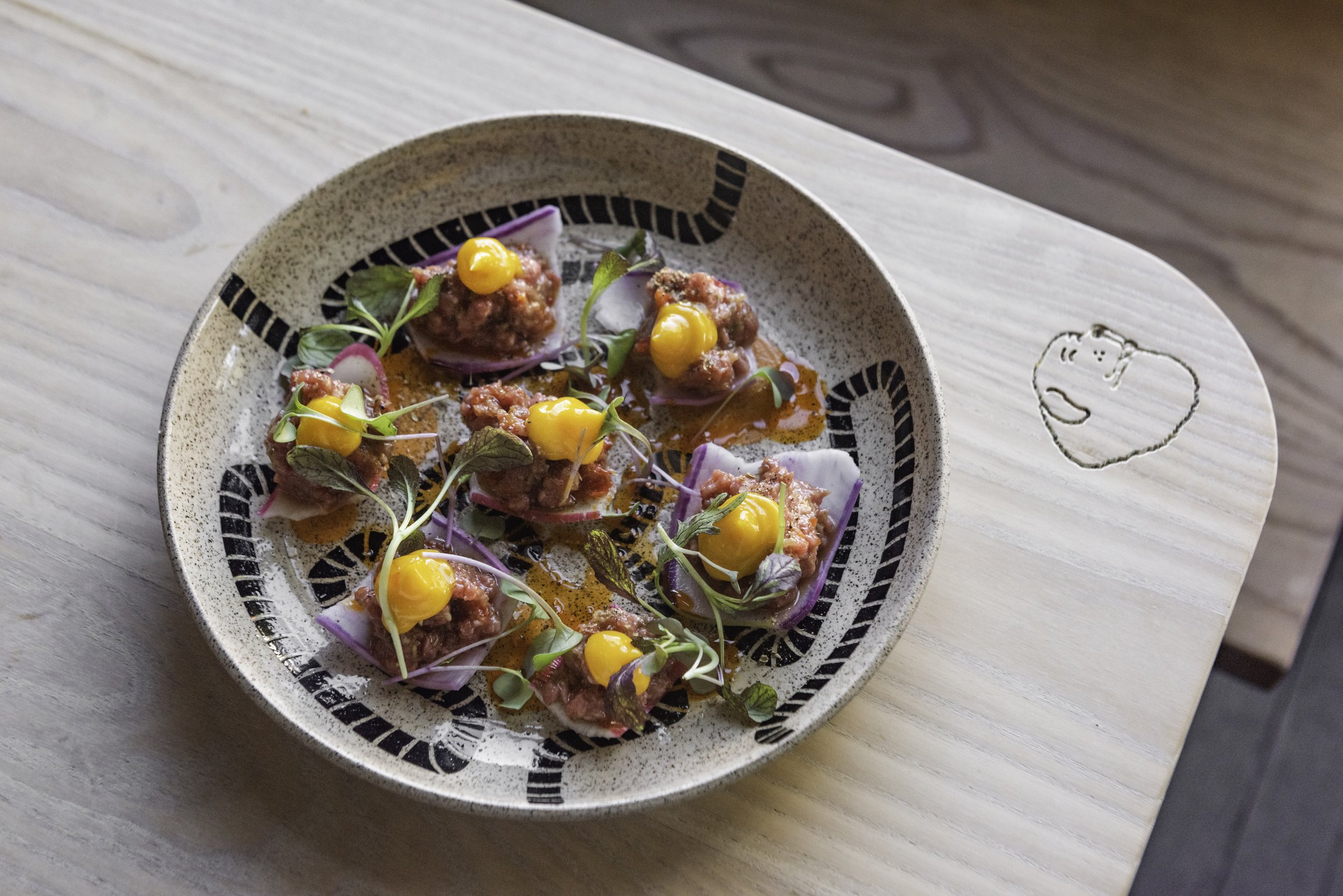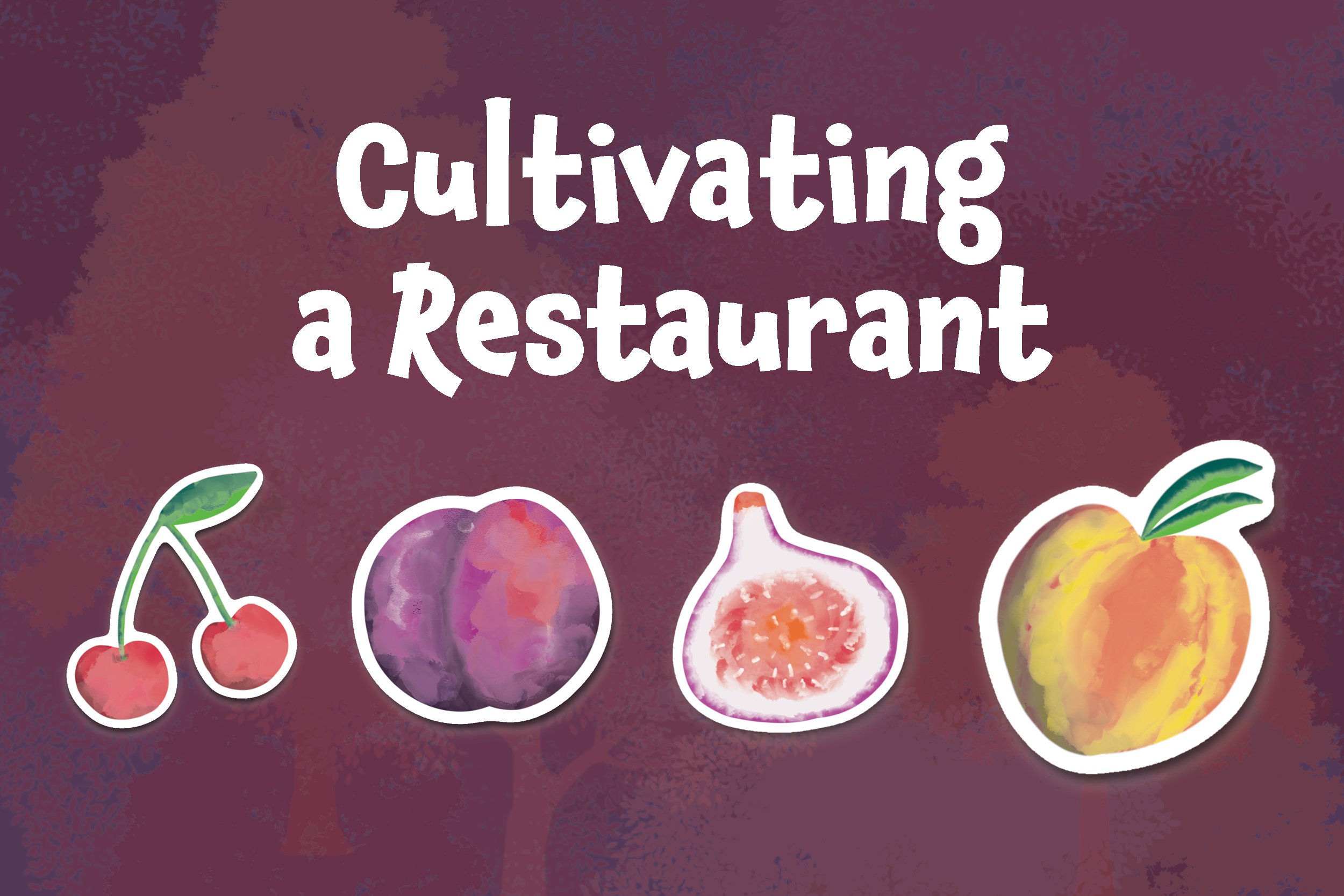Walking the Walk: A Model for Sourcing Locally
Georgia Organics’ Farmer Champion program recognizes chefs for investing in Georgia agriculture.
Chef Jarrett Stieber of Little Bear doesn’t need a decal on his restaurant door to show he supports local farmers—his customers are well aware of that. But the decal is one of several incentives offered by the non-profit, Georgia Organics, for chefs and restaurateurs who participate in its (newish) Farmer Champion program.
The Farmer Champion program was established in 2019 as a result of a grant from the U.S. Department of Agriculture Local Foods Promotion initiative. Through the program, “we’re able to verify that folks are sourcing locally when they say they are, and secondly, to celebrate those who are doing that work,” says Kayla Williams, Farmer Champion senior coordinator at Georgia Organics. “It also helps farmers grow their businesses beyond farmers markets.”
To participate in the program, food businesses need to submit food purchase invoices (from a two-week period) twice a year. “We calculate their total food cost against local food costs to get a procurement percentage,” Williams says. Those that source at least five percent locally are automatically enrolled into the group and will receive invitations to special events throughout the year as well as a listing in the Farmer Champion directory, which is published online and in an annual zine.
Restaurants who have submitted invoices for at least three time periods, however, can move up into different tiers—Gold, Silver, or Bronze—to earn those shiny door decals as well as public recognition and potential financial compensation.
This past year, Little Bear placed first as a top spender in both the local and local/organic categories. Other award winners included Talat Market and Miller Union in the local/organic category, and Evergreen Butcher + Baker and The Deer and The Dove in the local spend category.
Butternut Squash, Sweet Potato, Benne Milk, Cayenne Duo Jiao, Feijoa, Basil, Baharat Seed Relish at Little Bear
Bartender Charles Howk of Little Bear
For Stieber, whose local food purchases were in the 90th percentile in 2022, the decision to participate in the Farmer Champion program was a no-brainer. “We’ve never really sourced any other way,” he says, having bought from local farms for the past three years of Little Bear’s existence, and prior to that when he ran his pop-up. “We want to be a resource for connecting residents with sustainable, responsible food sources and help create a network between restaurateurs and farms. Farmers encounter hardships, and we want to be part of an organization that provides relief. A lot of people might use marketing schemes to say they source locally, but we want to walk the walk.”
Stieber says that the farms dictate his menu every week, and when local food comes in the door, he and Bar Manager Charles Howk do everything they can to waste none of it. “We’re a vegetable heavy restaurant, so we use all parts of the plant. We pickle rinds and use melon skins to make melon liqueur for the bar, we crush dehydrated trim into powder for seasoning blends, and use herb stems for infusions,” Stieber says. “If we get rainbow trout from North Georgia, we’re buying the whole fish and butchering it in-house. We find a way to get life out of everything.”
Teriyaki Stuffed Chicken Wing, Sesame Seed, Shaved Vegetable Salad, Togarashi-Yuzu Dressing at Gunshow
La Máquina Verde: Tequila, Mezcal, Black Olive-Miso Syrup, Fermented Shishito Soda, Lime at gunshow
At Gunshow, Chef de Cuisine Chris McCord and Bartender Jeramie Eubanks also work closely together to use all the product they receive from local farmers. Like Little Bear, they have Gold status with the Farmer Champion program and subscribe to a “using the whole everything” mentality. McCord will “break down hundreds of broccoli at a time and throw them in pickling jars,” to utilize year-round. Behind the bar, Eubanks has dehydrated and ground local chanterelle mushroom stems into powders for his drinks. “I have 20 pounds of kumquats this week, so Chris and I will make vinegar or miso to preserve the leftovers,” he says. They make vinegar out of just about anything, from smoked tomato water, using tomatoes farmers couldn’t sell at peak harvest, to seasonal romanesco.
At The Deer and The Dove, Bartender Matt Watkins works with Chef-Owner Terry Koval to use the local produce they get each week, making syrups out of locally foraged berries, bitters out of Meyer lemon peels, and savory liqueurs out of sunchoke trimmings and herb stems.
All the chefs say submitting the invoices to participate in the Farmer Champion program takes little time and the payoff is well worth it. Chef Michael Staniewicz of Wrecking Bar Brewpub started working with Georgia Organics two and a half years ago, and has remained committed to the cause ever since. “It’s a growing program in our restaurant community, and I think it encourages people to do the same in other parts of the country,” he says. “We stand with the farmers here, and it means a lot to our customers that the chef is ordering from local farms and families here in Georgia.”
Bartender Matt Watkins of The Deer and The Dove
Roasted Carrots, Honey, Harissa, Crispy Chickpeas, Whipped Ricotta, Lemon Oil at Wrecking Bar Brewpub
Staniewicz also says he enjoyed the built-in supply chain when other commodities were hard to come by during the pandemic—plus, his customers appreciated the loyalty. The zero waste mentality (using ribeye scraps for tartare, trout belly for smoked trout dip, and beet greens for sautés, etc.) pays for everything. “Anything else we don’t use goes into family meals—and we have pretty epic family meals.”
For Watkins, the educational aspect of the program’s events has been worth it. “Georgia Organics has done a lot of work to educate service industry workers not only about who the local farmers are, but how they’re growing their product, taking care of the soil, and helping the community” he says.
Diners have incentives to dine at participating restaurants, too; starting this August, leading up to Georgia Organics' Farmer Champion Week event, they can use the ‘Passport’ page at the back of the zine to earn stickers for each Farmer Champion restaurant they visit and enter to win a raffle, typically a gift card to the Farmer Champion restaurant of their choice.
“We’re coming up on 10 years of sourcing locally, and it’s a nice feeling to know that there are other restaurants doing the same thing,” says McCord. “Sure, we’ll throw the decal on the window and take a few pictures for Instagram, but for me, participating in the Farmer Champion program shows a commitment to our suppliers and boosts the morale of our team—and that’s what really matters.”

